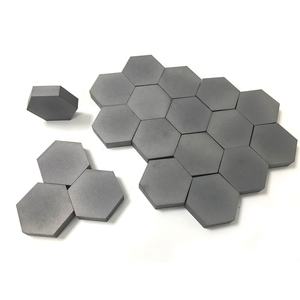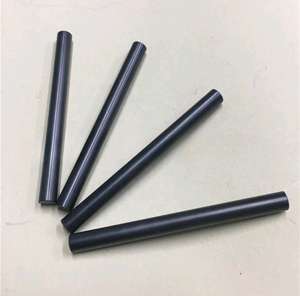Discover Premium Ceramic Products | Durability & Elegance United | Advanced Ceramics
PRODUCT PARAMETERS
Description
Overview of Silicon Carbide Ceramics
Silicon Carbide (SiC) ceramics are renowned for their outstanding mechanical properties, including high hardness, strength at elevated temperatures, and excellent thermal shock resistance. These materials are pivotal in cutting-edge industrial applications, from abrasives to aerospace components, due to their unique combination of properties.
Features of Silicon Carbide Ceramics
High Hardness: Exceptional wear resistance.
Thermal Shock Resistance: Can withstand rapid temperature changes.
Chemical Stability: Resistant to most chemicals.
High Thermal Conductivity: Efficient heat dissipation.
Low Density: Lightweight for its strength.
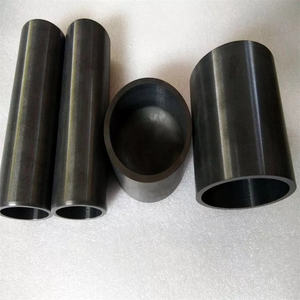
(Customized Refractory Silicon Carbide Ceramic Block SIC Part)
Specification of Customized Refractory Silicon Carbide Ceramic Block SIC Part
Customized Refractory Silicon Carbide Ceramic Block SIC Parts are engineered for high-performance applications requiring extreme durability. The material combines silicon carbide with advanced ceramics, ensuring superior resistance to heat, corrosion, and mechanical wear. These blocks handle temperatures up to 1650°C without losing structural integrity. They maintain strength in harsh environments, making them ideal for industries like metallurgy, chemical processing, and energy production.
The product is customizable in shape, size, and surface finish. Precision machining allows tight tolerances, ensuring seamless integration into existing systems. Complex geometries are achievable, meeting specific operational needs. Surface treatments enhance performance, such as anti-oxidation coatings or polished finishes. Customization extends to density and porosity levels, optimizing thermal conductivity and shock resistance.
Silicon carbide ceramic blocks excel in thermal management. Their high thermal conductivity distributes heat evenly, reducing hotspots in furnaces or reactors. Low thermal expansion minimizes cracking under rapid temperature changes. This stability extends equipment lifespan, lowering maintenance costs. The material’s hardness surpasses most metals, resisting abrasion from aggressive media like molten metals or abrasive gases.
Chemical inertness makes these blocks suitable for corrosive environments. They withstand exposure to acids, alkalis, and molten salts without degradation. This property is critical in chemical reactors or incinerators where reactive substances are present. Electrical conductivity options are available for applications requiring electrostatic discharge or heating elements.
Production uses high-purity raw materials and advanced sintering techniques. Quality control includes rigorous testing for density, hardness, and thermal shock resistance. Each batch meets international standards for refractory materials. Technical support is provided to help clients select the right specifications for their needs.
Industries benefit from reduced downtime and improved efficiency. Applications include kiln furniture, burner nozzles, heat exchangers, and protective linings. The blocks adapt to both oxidizing and reducing atmospheres. Compatibility with other refractory materials allows hybrid system designs. Long-term performance is proven in extreme conditions, ensuring reliable operation.
Technical data sheets detail mechanical, thermal, and chemical properties. Custom orders require lead time for design validation and production. Samples are available for testing before full-scale procurement. Global shipping ensures timely delivery to manufacturing facilities.
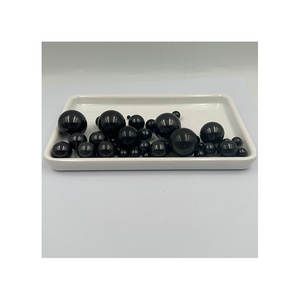
(Customized Refractory Silicon Carbide Ceramic Block SIC Part)
Applications of Customized Refractory Silicon Carbide Ceramic Block SIC Part
Customized refractory silicon carbide ceramic block SIC parts serve critical roles in industries requiring materials that withstand extreme conditions. These blocks handle high temperatures well. They resist thermal shock effectively. Industrial heating systems use them for furnace linings. Kilns and incinerators also rely on these blocks. The material’s stability at temperatures above 1600°C makes it ideal for such environments.
Metallurgical processes benefit from SIC ceramic blocks. They line crucibles for melting metals. They form protective layers in smelting furnaces. The blocks prevent molten metal contact with weaker materials. Their corrosion resistance extends equipment lifespan. This reduces downtime in metal production.
Chemical processing industries use SIC blocks in reactors and piping. The material resists acids and alkalis. It maintains strength in corrosive gas atmospheres. This ensures safe handling of aggressive chemicals. Heat exchangers made with SIC blocks transfer heat efficiently. They avoid degradation common in metal alternatives.
Power generation systems employ SIC blocks in components like burner nozzles. They endure high-velocity gas flows in turbines. Their low thermal expansion prevents cracking under rapid temperature shifts. This reliability supports continuous energy production.
Automotive sectors apply SIC blocks in brake systems. They withstand friction heat better than traditional materials. Electric vehicle battery components use these ceramics for thermal management. The blocks insulate sensitive parts from extreme heat.
Aerospace applications include SIC blocks in rocket nozzles. They tolerate combustion temperatures during launches. Satellite components use them for thermal protection in space. The material’s lightweight nature reduces payload strain.
Customization allows precise shaping for specific machinery. Manufacturers adjust porosity and density for different thermal needs. This flexibility ensures optimal performance across varied industrial setups. The blocks’ durability lowers replacement costs. Maintenance cycles lengthen with reduced wear.
Environmental benefits come from energy efficiency. SIC blocks retain heat better than many alternatives. This cuts fuel consumption in high-temperature processes. Lower emissions align with sustainability goals.
Company Introduction
Advanced Ceramics founded on October 17, 2014, is a high-tech enterprise committed to the research and development, production, processing, sales and technical services of ceramic relative materials and products.. Since its establishment in 2014, the company has been committed to providing customers with the best products and services, and has become a leader in the industry through continuous technological innovation and strict quality management.
Our products includes but not limited to Silicon carbide ceramic products, Boron Carbide Ceramic Products, Boron Nitride Ceramic Products, Silicon Carbide Ceramic Products, Silicon Nitride Ceramic Products, Zirconium Dioxide Ceramic Products, Quartz Products, etc. Please feel free to contact us.(nanotrun@yahoo.com)

Payment Methods
T/T, Western Union, Paypal, Credit Card etc.
Shipment Methods
By air, by sea, by express, as customers request.

5 FAQs of Customized Refractory Silicon Carbide Ceramic Block SIC Part
What is a customized refractory silicon carbide ceramic block SIC part?
It is a high-performance ceramic component made from silicon carbide. It resists extreme heat, corrosion, and wear. These blocks are tailored to fit specific industrial needs. They are used in furnaces, kilns, and reactors. Custom shapes, sizes, or features match exact application requirements.
Why choose silicon carbide ceramic blocks over other materials?
Silicon carbide handles higher temperatures than metals or standard ceramics. It stays stable under thermal stress. It does not crack or degrade quickly. It lasts longer in harsh environments. This reduces downtime and replacement costs.
Can these blocks be customized for specific needs?
Yes. Manufacturers adjust dimensions, shapes, and surface finishes. Holes, grooves, or threads are added as needed. Customization ensures compatibility with existing machinery. Precise specifications are met through advanced molding and sintering processes.
Where are these ceramic blocks commonly used?
They are used in steelmaking, glass production, and chemical processing. They line industrial furnaces and act as burner nozzles. They shield components in high-temperature zones. Their durability suits power generation and aerospace applications.
How do these blocks handle extreme temperatures?
Silicon carbide has a melting point over 2700°C. It conducts heat well, spreading thermal energy evenly. It resists thermal shock, avoiding cracks during rapid temperature changes. Oxidation resistance prevents breakdown in oxygen-rich environments. This maintains structural integrity over time.
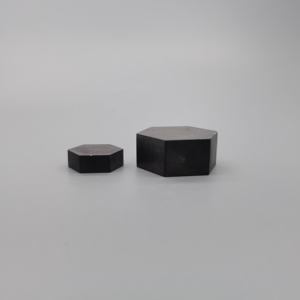
(Customized Refractory Silicon Carbide Ceramic Block SIC Part)
REQUEST A QUOTE
RELATED PRODUCTS
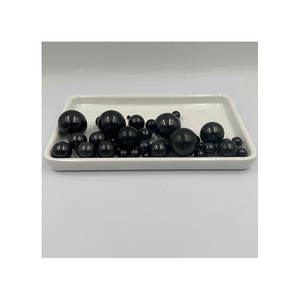
Factory Hexagonal Boron-carbide Silicon Carbide Ceramic Sheet
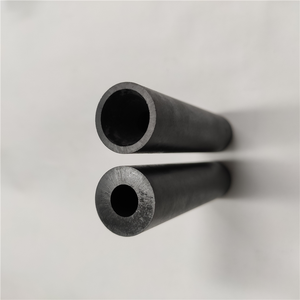
Pressureless Sintering Silicon Carbide Ceramic SiC Tube
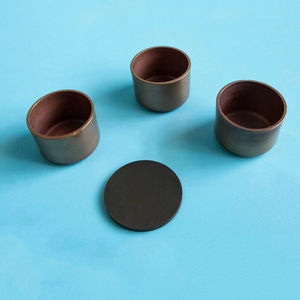
Customized Silicon Carbide Ceramic Plate and Sic Kiln Shelves / Setter Batts
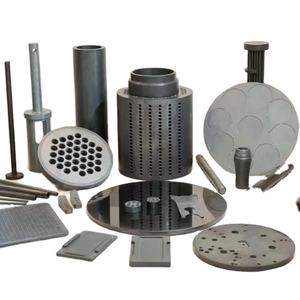
abrasive/ceramic material–green silicon carbide

OEM China Industrial Customized Black SiC Silicon Carbide Ceramic Plates
